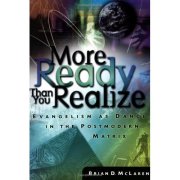This is what the LORD Almighty says: “Give careful thought to your ways. Go up into the mountains and bring down timber and build the house, so that I may take pleasure in it and be honoured,” says the LORD. “You expected much, but see, it turned out to be little. What you brought home, I blew away. Why?” declares the LORD Almighty. “Because of my house, which remains a ruin, while each of you is busy with his own house. Therefore, because of you the heavens have withheld their dew and the earth its crops.”
Haggai 1:7-10, NIV*
God is speaking through Haggai to the Jews who have returned from exile. They’d started to rebuild the temple, but how could what they put together out of rubble compare with the remembered glory of Solomon’s temple? Building homes didn’t seem as impossible, and it was a legitimate need too.
Christians today don’t have a temple to rebuild, but we’re each temples of the Holy Spirit. And we’re not to neglect meeting together as congregations of faith.
We’re sure busy with our own “houses”: work, household duties, busy schedules… nobody has much time for church events. It’s hard enough to fit in time for Sunday worship.
The last thing we need is another church group or committee meeting. And people can burn out or weaken their families by being too busy in the church.
But this idea of building… rebuilding….
If we are the body—the church—then maybe the rebuilding isn’t about formal meetings or events. Maybe it’s about relationships. Some of that can happen in structured settings, but it can also happen one-on-one as we take the initiative.
This isn’t the pastor’s job. It’s up to each of us. And it’s what will cause observers to know we belong to Jesus.
Father, some things from my own “house” will need to move aside to make time for Yours. But doing things Your way is always better than pushing for mine. Please help me to seize the opportunities You give to connect with my spiritual brothers and sisters—so You may take pleasure in us and be honoured.
∞
An appropriate song-prayer is “Bind Us Together”.
*New International Version (NIV) Holy Bible, New International Version®, NIV® Copyright ©1973, 1978, 1984, 2011 by Biblica, Inc.® Used by permission. All rights reserved worldwide.

 Majesty in Motion: Creating an Encouragement Culture in all Your Relationships
Majesty in Motion: Creating an Encouragement Culture in all Your Relationships More Ready Than You Realize
More Ready Than You Realize